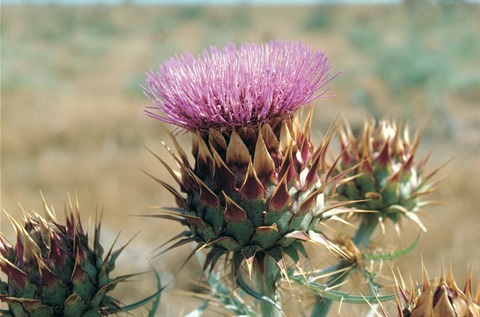Weed Compliance and Education Program

We are committed to ensuring that the City’s natural heritage, environment and rural spaces are protected, enhanced, maintained, and valued.
For this reason, we support and invest in a range of programs and projects that support rural residents to manage their land sustainably. This includes field days and workshops, fauna monitoring, technical assistance, and a range of incentive programs.
The Weed Compliance and Education Program (WCEP) aims to work with rural landholders on making a reasonable effort to control noxious weeds on their land.
What is the objective of the Program?
The objective of the program is to reduce noxious weed infestations across rural Hume. The program seeks compliance against Section 33 of the Hume City General Purpose Local Law No. 1 2023:
An owner or occupier of land must take all reasonable steps to control, reduce and manage noxious weeds and pest animals on their land.
This local law is made in accordance with section 111(1) of the Local Government Act (1989).
The Noxious Weed Local Law gives Council the authority to direct a landowner or occupier to eradicate noxious weeds and enables the issuing of an infringement penalty where a landowner or occupier fails to do so.
How will the Program work?
All landholders will be notified of each upcoming seasonal Weed Compliance and education program through advertising in Council’s Re-Source Rural Environment Newsletter publication, Councils E-News portal and direct mail. Each seasonal program will focus on one or several noxious weeds.
Weed Advisory Notice (WAN)
Council issues this notice as a courtesy in advance of the control period for the target species.
The notice informs the landholder that a pest plant has been identified and is required to be eradicated under the local law.
Notice to Comply (NTC)
A Notice to Comply is the first notice issued in the compliance process.
Landowners are directed to eradicate the subject species and given 14 days to comply.
Timing is crucial for best results, and to achieve landscape-wide weed control, the aim is to have everyone undertake their work at the same time. However, in some circumstances, a request for more time to undertake control can be granted at this stage.
Penalty Infringement Notice (PIN)
Where no work is undertaken, as directed in the Notice to Comply, or is deemed unsatisfactory, an infringement against the property owner is issued.
A Penalty Infringement Notice is issued in accordance with the Infringements Act 2006.
Further legal proceedings
>In circumstances where Council has taken all reasonable steps to work with the landholder to undertake weed control, Council can take the matter to the Magistrates Court.
What resources are there for me?
We have a suite of opportunities available for landowners to increase their knowledge of and skills in sustainable land management.
Council’s Rural Engagement Team run a series of events and workshops throughout the year. These are advertised through various Council media avenues.
Weed fact sheets(PDF, 539KB) providing species-specific information on control methods and timing, are available from Council’s website and from the Rural Engagement Team.
Council offers a number of sustainable land management incentive programs for eligible rural landholders.
In extenuating circumstances, Council can arrange a site visit and provide a strategic control plan for the landowner.
A list of environmental weed control contractors operating in the municipality is available from Council for those land managers unable to undertake the work themselves.
Who can I contact for assistance?
If you have questions about the Weed Compliance Program or need assistance, please contact Council’s Rural Environment team on 9205 2200.